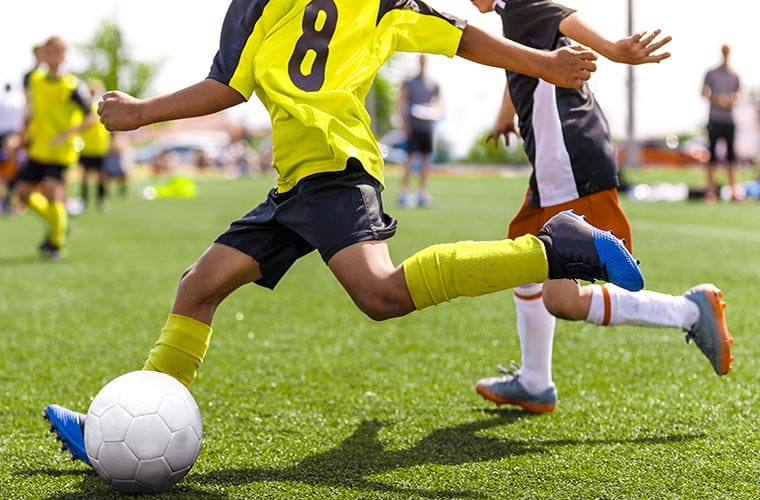Play Hard, Stay Safe: Tips to Prevent School Sports Injuries

For some students, the new school year meant a return to the fun and camaraderie of school sports. Unfortunately, it's also a return to something that’s not quite so fun - sports injuries.
According to BayCare Kids Pediatric Orthopedic Surgeon Dr. Tracey DeLucia, preparation is the perfect way to prevent injuries. She offers the following tips for helping kids stay injury-free this sports season.
Physical Checkup
To make sure your child is physically fit to participate in a particular sport, be sure they undergo a sports physical. These exams can reveal a child's physical strengths and weaknesses and help determine which sports are appropriate.
Focus on Nutrition
Student athletes require more calories to support training demands, proper growth and development. There is no one-size-fits-all plan as individual nutrition varies by sport, intensity, body size and age, but in general should include a balance of healthy carbohydrates, protein, fruits and vegetables.
Dr. DeLucia notes that many of her injured patients confess that they regularly skip breakfast—a problem because it’s tough to fit in the necessary nutrition a student athlete needs when only eating lunch and dinner. That’s why Dr. DeLucia also discourages child athletes from intermittent fasting.
Hydrate
Especially in the intense Florida heat, it is crucial to drink plenty of water before playing. Student athletes need 1 ounce of water per pound of body weight, which means that a 140-pound teen needs to drink about seven 20-ounce water bottles. Athletes should not drink soda, as it dehydrates and adds calories, and the carbonation leaches calcium from bones. Some sports drinks are OK, but only within the context of athletic activity.
Practice Sleep Hygiene
Getting enough sleep is a crucial component of maintaining overall health and staying in optimal condition for school and sports. Students ages 9-11 should get 8-10 hours of sleep a night while those 14-17 years old should aim for 9-10 hours. Dr. DeLucia suggests having kids turn off devices 30 minutes before bed, keep the bedroom dark and make sure bedtimes and wake-up times are regular and consistent.
Diversify
Data shows that kids ages 9-18 who practice “sports sampling” have far fewer injuries than those who specialize in just one sport. Dr. DeLucia recommends choosing different fall, spring and summer sports. “This develops additional muscle tone, prevents burnout and prevents overuse of specific muscles,” she said. Private lessons can maintain skills; for example, a child can play soccer one season but simultaneously take private hitting lessons so as not to lose baseball skills.
Set Limits
Protect children from unreasonable schedules. You wouldn’t expect an NBA player to play a game every night, but kids are routinely scheduled for marathon tournaments where they play seven or eight games in one weekend. Parents and coaches should work together to implement responsible and reasonable amounts of play and practice.
Seek Help for Injuries
During preseason, your athlete will likely come home exhausted and hurting, and this is normal. But if they feel pain while doing an activity, consider it a red flag. Kids are taught to be tough and push through pain, but that philosophy can cause them to injure themselves through incorrect technique or overuse of muscles. If your child complains of pain during an activity, stop the activity, rest and apply ice. If the pain persists, make an appointment to see their pediatrician or a specialist.
The BayCare Kids Pediatric and Adolescent Sports Medicine Program specializes in the diagnosis, treatment and rehabilitation for sprains, soft tissue contusions, stress fractures, concussions, and tendinitis, as well as specialized treatment for sports-related injuries. For a referral to a BayCare Kids orthopedic specialist, please call (813) 870-4747.
